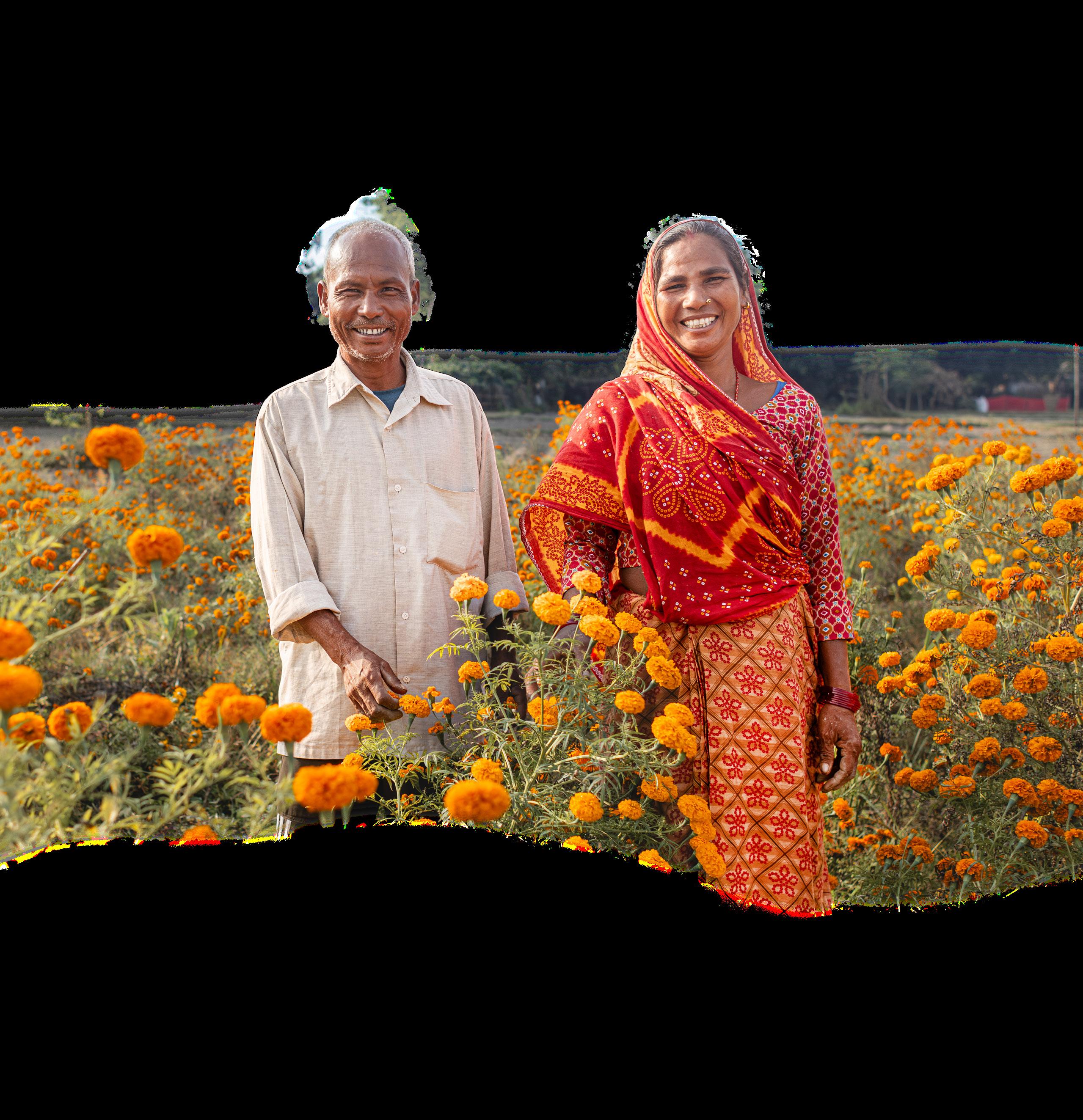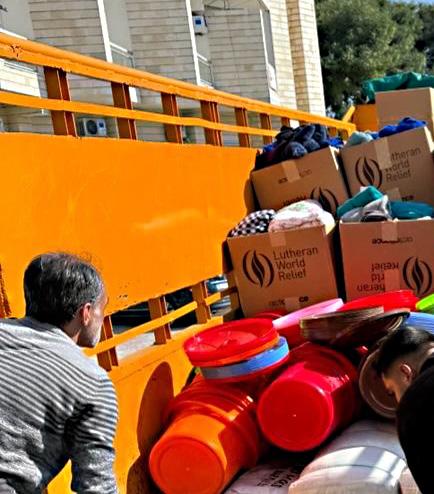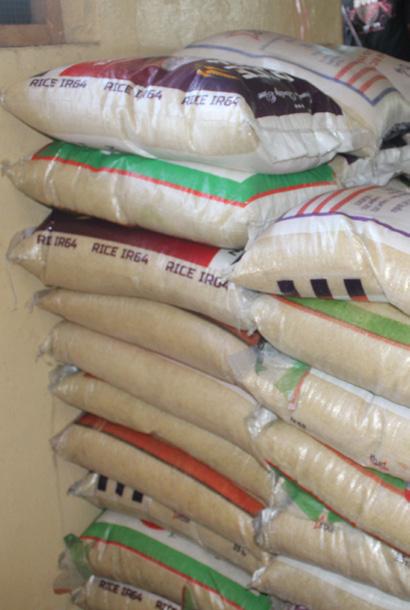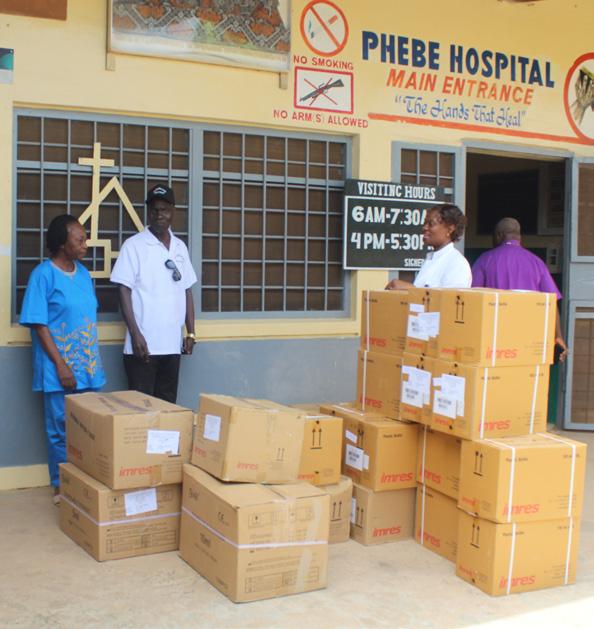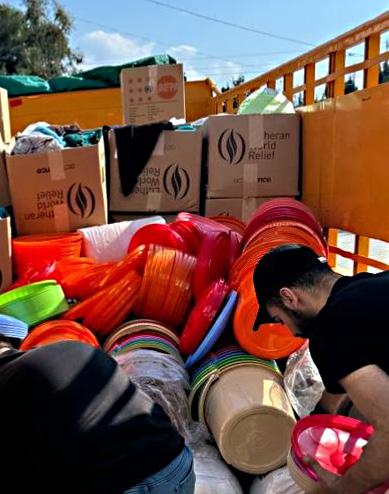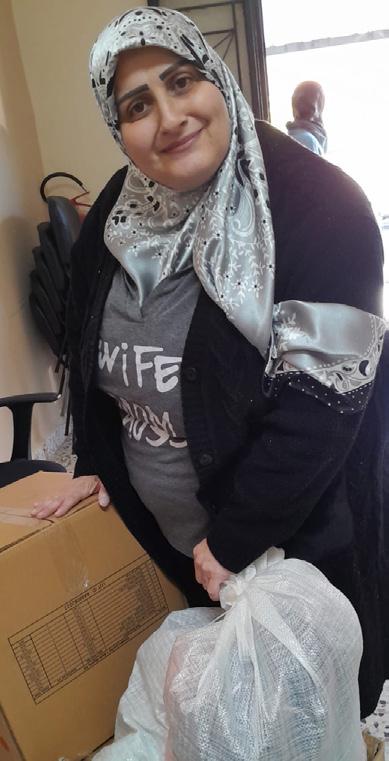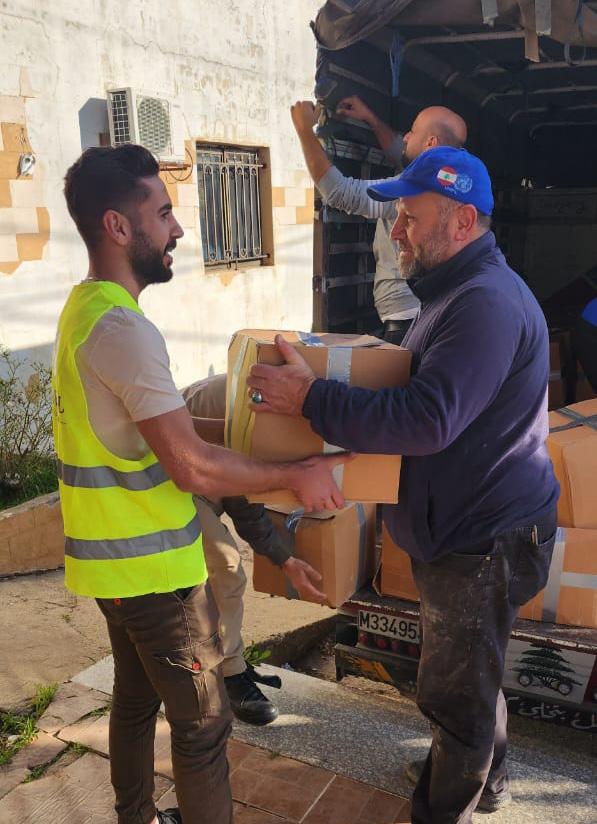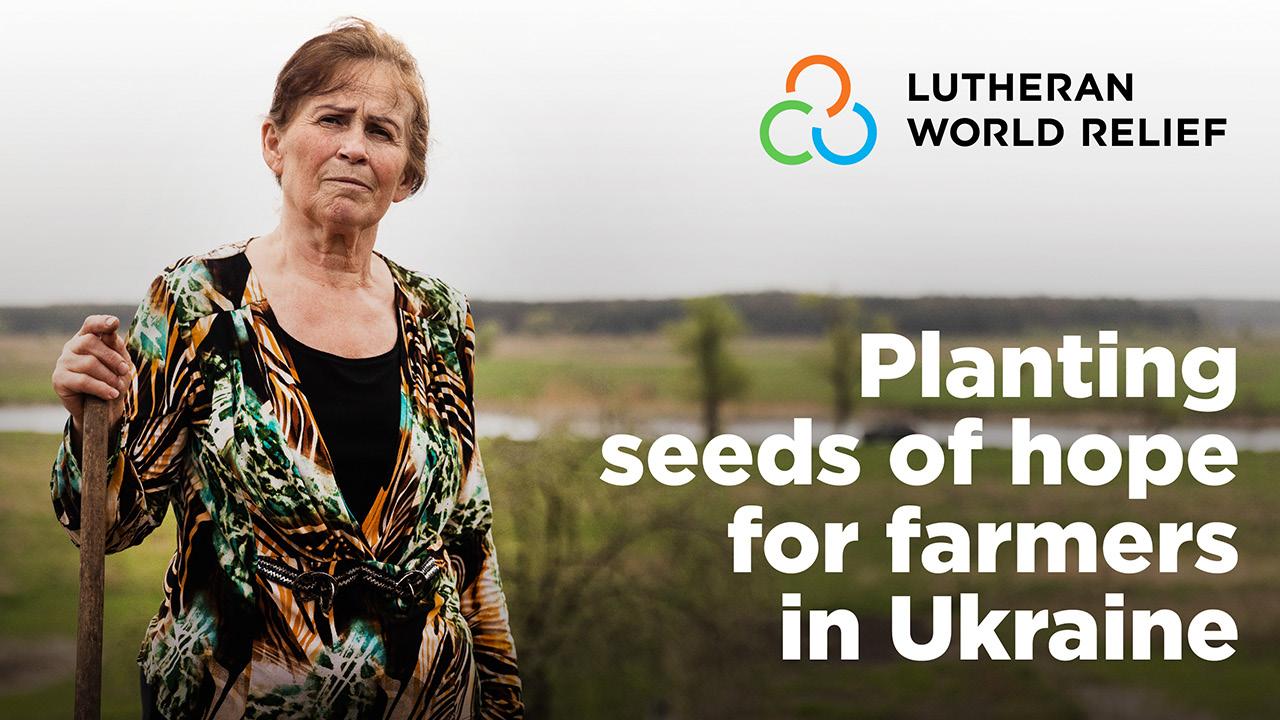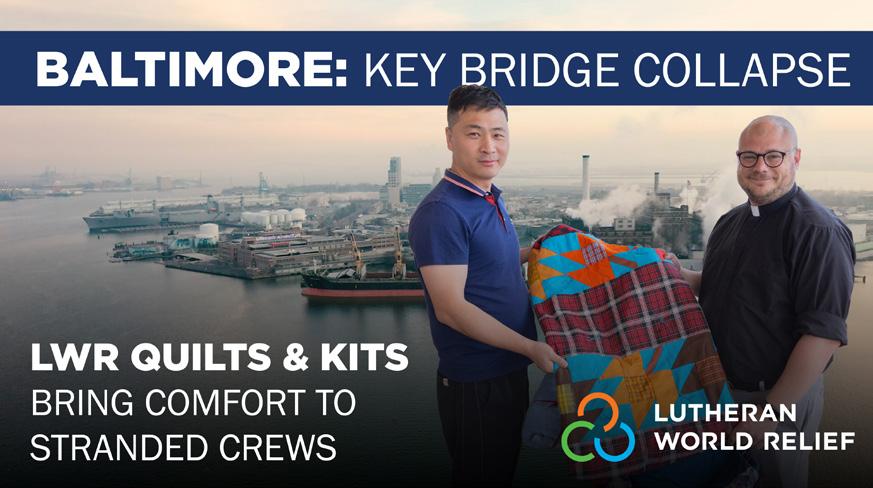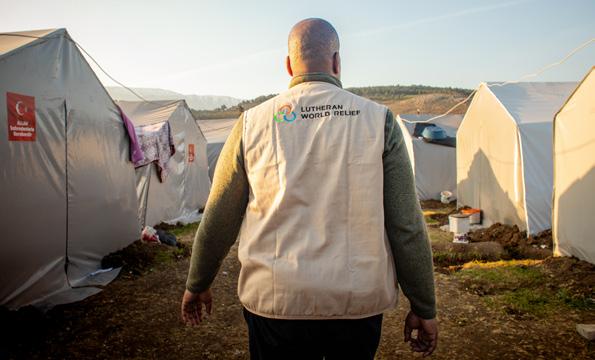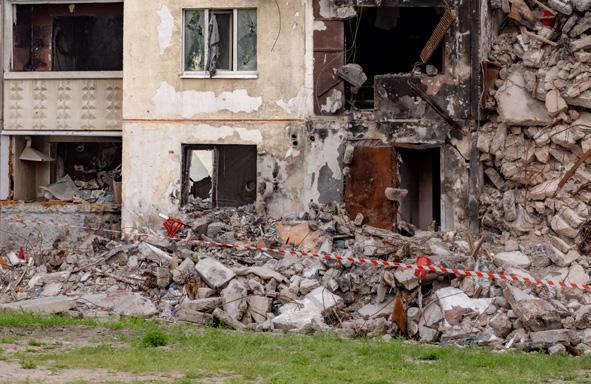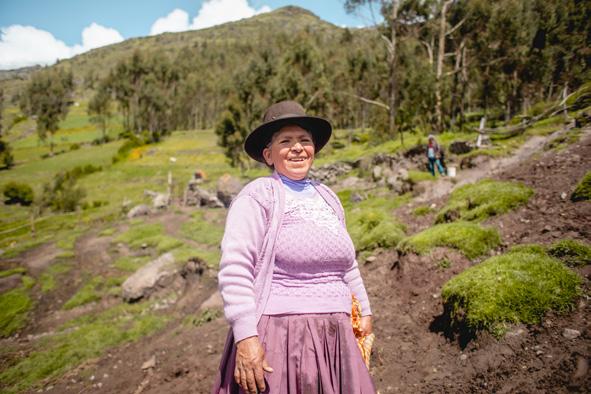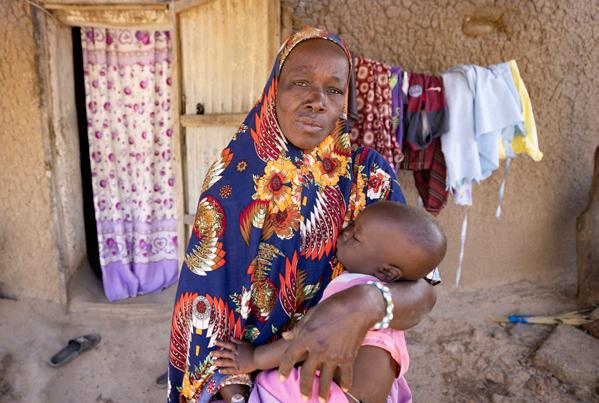DEAR PARTNER IN MINISTRY,
You strive to be the hands and feet of Jesus as you serve your church, community and the wider world. How do you discern and prioritize where you spend your time and resources?
At Lutheran World Relief, we understand what it’s like to be pulled in many directions. We prioritize by striving to go where no other organizations go: the hardest-to-reach villages, the places we rarely hear about.
We also aim to stay after everyone else leaves. Many are quick to help when disaster strikes, but that support often ends while families are still in crisis.
Going farther, staying longer. This is hard and holy work, and congregations like yours make it possible. Congregations that choose to prioritize loving their neighbors. Congregations that recognize it’s not a mission anyone can accomplish alone.
I am so grateful for you — for your hard work, your partnership and your faithful service to God’s people, everywhere.
In Christ,
REV. LISA KIPP Director of Congregational Engagement lkipp@lwr.org
P.S. The center spread of this issue is a poster! I encourage you to hang it on your church’s bulletin board for your congregation to see and celebrate their impact.
EMERGENCY UPDATE unexpected ways your congregation is helping
Our world presents endless opportunities for the people of faith to respond with compassion. You may be surprised by some of the lesser-known places — or unique ways — your congregation has helped so far this year.
1LIBERIA
In late December, a fuel tanker exploded, killing 89 people and badly burning 100 more. Your congregation’s support sent shipments of medicine and supplies the local hospital urgently needed to treat survivors and restock shelves. You also provided nourishing comfort in the form of rice and other food items to 245 people whose lives and livelihoods were affected by this tragedy.
COVER: Nageswor Chaudhary and his wife Ram Bati Chaudhary in their farm’s marigold field. They live in the eastern Nepal farming community of Saptakoshi with their children.
A truck carrying food parcels and Lutheran World Relief Quilts & Kits arrives in southern Lebanon.
2
Families in the southern region are caught in the crossfire of renewed fighting between Hezbollah, which has voiced support for Gaza, and Israel. Lebanon has endured a long and severe economic crisis. This new wave of violence has forced already struggling families deeper into chaos and hunger. Your congregation responded by providing emergency food to 222 families and Lutheran World Relief Quilts & Kits to 1,000 families.
The war has decimated farmlands, destroying sources of food and income. Your congregation’s kindness is providing agriculture support to 5,500 families in the volatile eastern region, including training on how to assess fields for landmines. You’re also providing seeds to grow the ingredients for borscht — a nutritious staple meal in Ukraine.
See how your love is planting seeds of hope for farmers devastated by war. Watch online at lwr.org/congregations.
4
MARYLAND, USA
In March, a ship struck and collapsed the Francis Scott Key Bridge in Baltimore, killing six people. Several other ships were trapped behind the wreckage for weeks. Because crews did not have visas to come ashore, they relied on local organizations to deliver fresh water, food and supplies. Lutheran World Relief distributed more than 150 Quilts and Personal Care Kits across seven ships to make their stay more comfortable. After all, seafarers make the Quilt & Kit Ministry possible!
Visit one of the ships and learn how your handmade gifts brought comfort to crews stuck in the port. Watch online at lwr.org/congregations.
South Sudan
Due to ongoing conflict, millions of people are forced to live a nomadic life. But even when they are safe from violence, women and children in remote areas are especially vulnerable to killers like malaria, malnutrition and complications during pregnancy and childbirth. To best serve them, your compassion provides mobile clinics that follow communities when they move. You’ve even purchased a motorboat to bring health care to your neighbors who live where there are no roads.



Farmers need rain. But every rainy season — when flooding washes away their crops — the rain can seem like a curse. caring churches like yours have equipped flood-prone communities to adapt and overcome. Today, these farmers have a warning system to alert each other to rising waters so they can move their valuables to higher ground. They have also learned how to grow flood-resilient crops and farm during the dry season. Now, hundreds of formerly struggling farmers like Nageswor Chaudhary can feed their families, educate their children and afford basic medical care.
PIGI, SOUTH SUDAN
SAPTAKOSHI, NEPAL
made from a bicycle and a cart crafted from parts of a broken wheelchair.
ABOVE: Ram Bati Chaudhary holds a radish she picked from the greenhouse on the vegetable farm she shares with her husband. Visit lwr.org/congregations to watch the inspiring story of Nageswor and his family’s vegetable farm.
But making ends meet has never come easily. That’s largely because Nageswor’s family are Dalit, or members of one of the lowest castes in Nepal’s social hierarchy. Opportunities are limited for them, and they generally live on less-desirable land. For many poor farmers, that means living on the floodplain near the river — which overflows every monsoon season, drowning their crops.
Crafting other solutions for income
Over the years, Nageswor tried carpentry, masonry and bicycle repair to supplement the income from his farm. No job paid enough to fill his children’s bellies, cover school fees or pay for medical care, which is a challenge because Nageswor is diabetic.
“We couldn’t improve our quality of life then,” he recalls. “We used to feel very helpless. It weighed heavily on my heart.”
Then your congregation gave him a hand up
In 2014, Lutheran World Relief began working with poor communities in Nepal to increase flood safety and reduce the impact of floods on families’ livelihoods. Thanks to the kindness of congregations like yours, this work has grown to include more villages and types of livelihoods training.
When Nageswor had the opportunity to work with Lutheran World Relief to improve his meager farm, he jumped at the chance. “Farming is our ancestral way of life,” he explains. “So, my wife and I decided to farm vegetables together.”
Three years ago, he received support to build a greenhouse, plus training and seeds to grow crops outside the rainy season. Today, he grows tomatoes in hanging bottles, cauliflower, turnips, marigolds, mustard greens and more. His greenhouse crops fetch a higher price at the market and have allowed him to grow his farm to six times its original size.
Hard work is paying off
Today Nageswor’s family is thriving. He has helped two daughters get married and three complete secondary school. He also has money to save and invest in local microloan groups to continue getting ahead.
He looks around his farm and his family with pride. “Now I do not need to rely on others, or stretch out my hands to others for money,” he says.
All because your congregation gave him the hand up he needed to cultivate a sustainable future.
ABOVE: Nageswor and Ram Bati in front of their home with three of their daughters, a granddaughter and a niece.
“Now I do not need to rely on others, or stretch out my hands to others for money.”
Nageswor with one of his inventions: a cart made with the wheels of a discarded wheelchair.
Nageswor inspects his hanging tomato plants alongside local staff member Sarawan Chaudhary.
